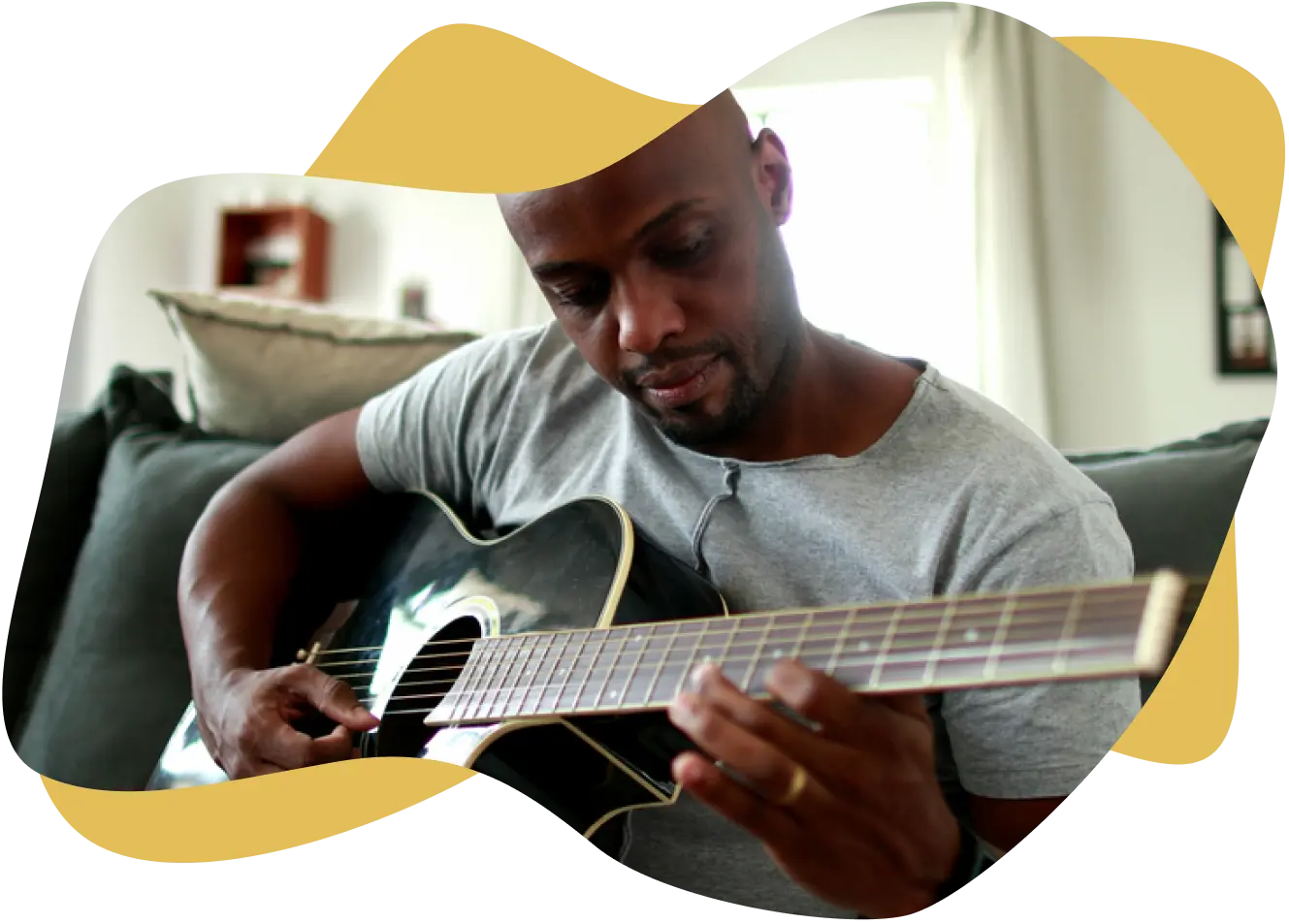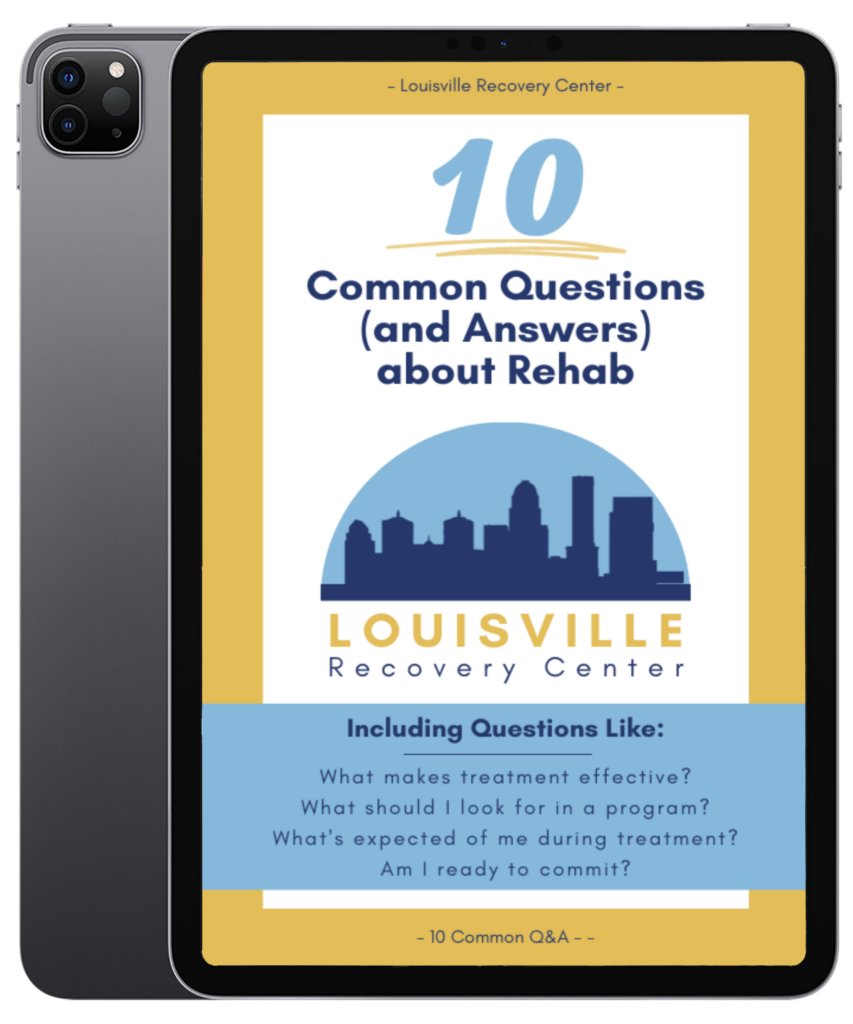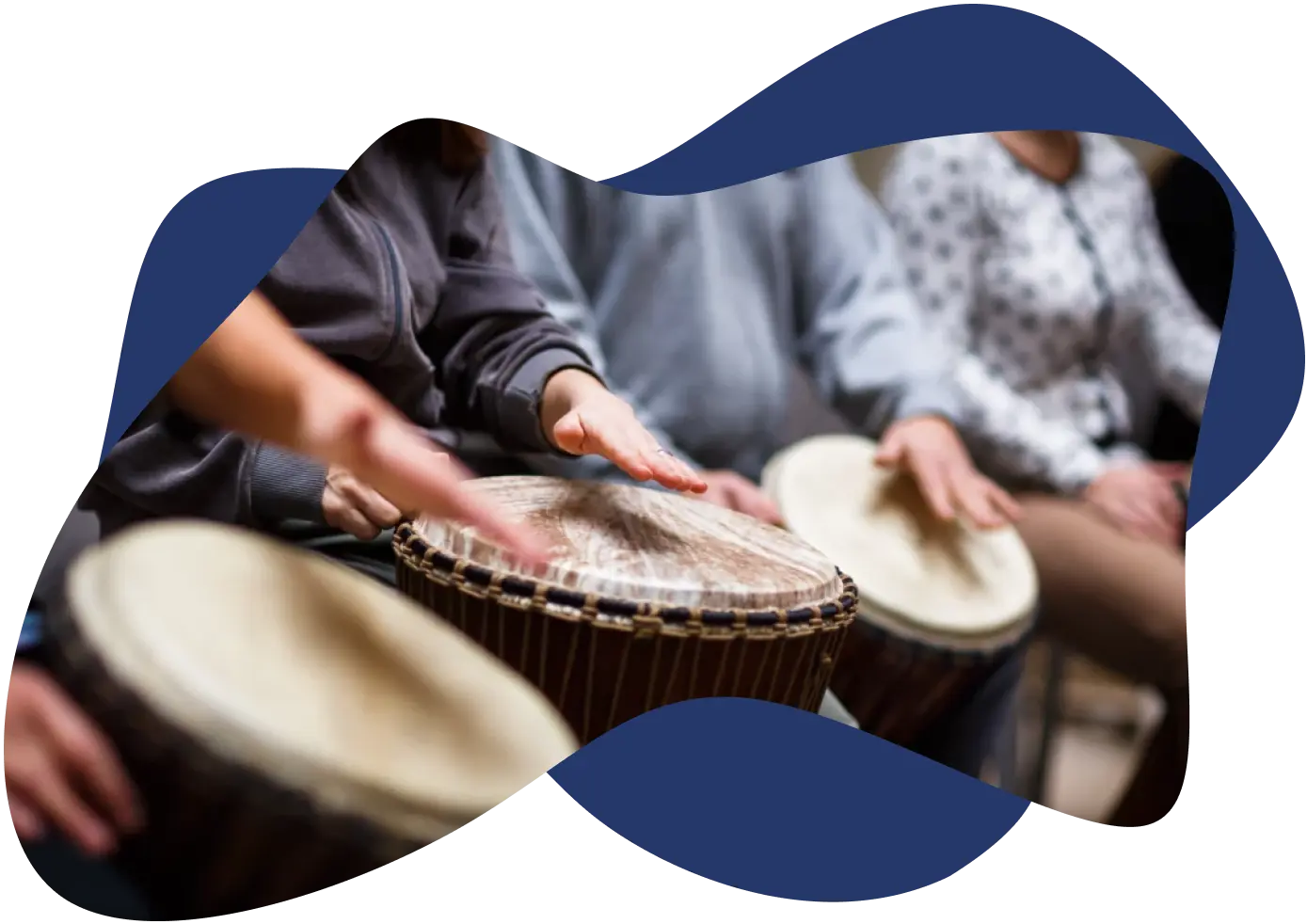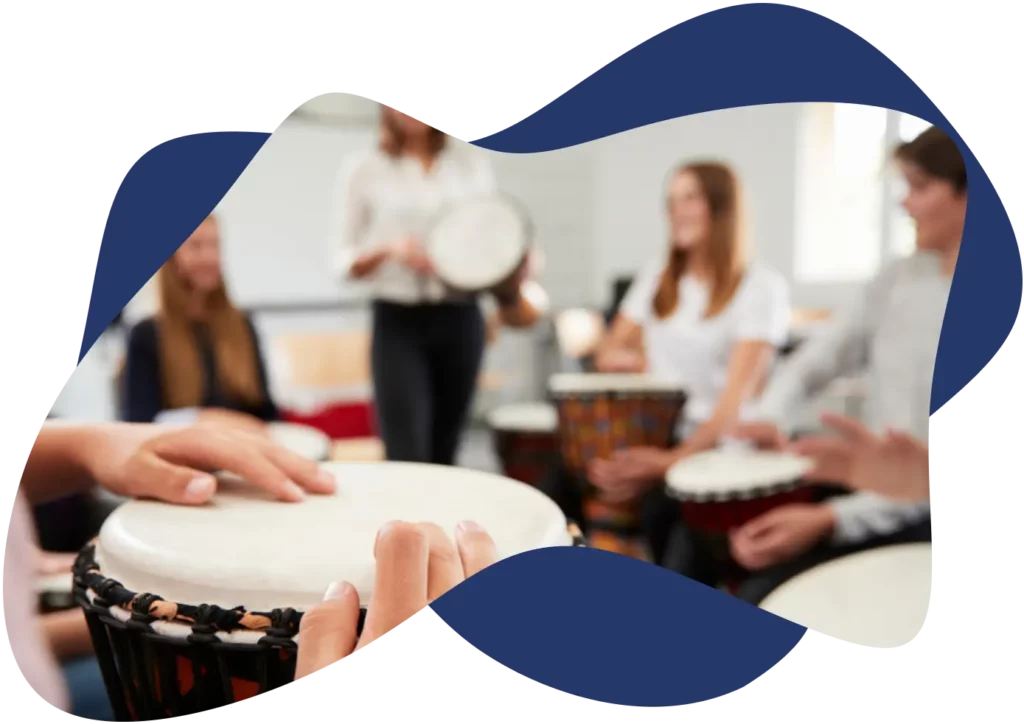Music Therapy In Louisville
at Louisville Recovery Center
Have you ever been going about your daily business and heard a song that instantly took you back to a significant moment in your life? Musical experiences have the ability to make you feel calmer, happier, or even sad. We all know the power of music and how it plays into our quality of life. But, did you know that music can also act as an evidence-based therapy?
Music therapy is now playing a more significant role in health and healing. Although there are numerous benefits to using music therapy for physical and mental well-being, it can also be an effective tool in addiction treatment.
Music Therapy at Louisville Recovery Center
We at Louisville Recovery know all too well that addiction negatively affects your health, finances, and personal relationships. Fortunately, with time, dedication, and specialized care, you can recover.
The professionals at Louisville Recovery Center help you put your substance abuse in the past and move forward with confidence. Don’t wait any longer to seek treatment if you or a loved one is currently struggling with substance use and addiction. If you would like to learn more about music therapy or any of our other holistic treatments, contact Louisville Recovery Center and speak with a specialist today. We are here to help.

What is Music Therapy?
Music therapy is a form of therapy that employs music to help patients address a variety of issues, including reducing stress, improving mood, and boosting self-expression. Listening, singing, playing instruments, and composing music are all examples of music therapy activities. Musical ability is not required to participate.
Music therapy is thought to be an effective complementary therapy when used in conjunction with psychotherapy or other primary therapies. In addition to being a treatment, music must be provided by a board-certified music therapist in order to achieve certain goals.

Fill Out This Quick Form To Download Our FREE 10 Q&A About Rehab eBook
Music Therapy vs. Sound Healing
Sound healing is different from music therapy in that it uses specific frequencies and harmonics to heal the body. Music therapy, on the other hand, uses a cacophony of frequencies and harmonies to elicit an emotional response.
Some music therapy programs include sound healing as a component. Academic research has legitimized the use of music and continues to integrate it into many clinical fields. Both music and sound therapy are enjoyable, may be performed in the comfort of the home, and may be easily accessed by individuals.
Types of Music Therapy In Louisville

There are several distinct forms of musical therapy in the world today, all of which are based on the connection between music and human emotions. Musical therapy is based on a variety of psychological theories which helps to define them. Different types of music therapy include:
- Bonny Method – Using mental imagery with music, the Bonny approach to music therapy helps patients deal with both physiological and psychological issues. Patients are asked to envision an image as a starting point for discussing any relevant issues. In addition to this guided imagery, music is played during the session, which assists patients in healing and finding answers with increased awareness.
- The Dalcroze Method – This is a therapeutic method of teaching music to clients. This method of music education is believed to improve physical awareness significantly, which consequently improves motor skills.
- The Kodaly Method – The use of this approach can positively impact perceptual function, concept formation, self-esteem, motor skills, and learning performance in addition to enhancing intonation, rhythm, and music literacy.
- Neurologic Music Therapy – Based on neuroscience, NMT is a form of music therapy that examines the connection between the brain and music, as well as the influence of music on behavior. By manipulating the difference between brain function with and without music, NMT attempts to influence the patient’s brain in order to modify their behavior outside of music.
- Nordoff-Robbins Method – The Nordoff-Robbins approach is based on the notion that everyone can gain something from music, and the therapeutic relationship applied in this method assists with music creation. This method of songwriting improvisation is currently popular all over the world, and it can help patients of all levels of experience despite musical skills.
Benefits of Music Therapy In Louisville

Music has been employed for centuries to assist in the healing process, but it also has some pain-relieving properties. Patients who listened to pleasurable music while undergoing uncomfortable medical procedures reported feeling less pain and anxiety as a result of those procedures.
Music therapy alone is not enough to treat addiction, but it can be an effective addition to a comprehensive addiction treatment program. The positive effects of music therapy include:
- Reduces stress
- Relaxes
- Alleviates anxiety/depression
- Lowers blood pressure
- Promotes positivity
- Provides an outlet for restlessness
- Encourages self-expression
- Nurtures healthy communication skills
- Promotes overall physical health
- Improves focus and concentration
- Improves overall emotional wellness
- Alleviates muscle tension
- Promotes healthy sleep
- Promotes solidarity
- Improves immunity
The Music Therapy Process
Music therapy, at its core, is the collaboration between a therapist, a client (or clients), and music. The team and the patient’s objectives determine the approach of the clinical sessions, which are created by a qualified music therapist. However, it is important to know what generally takes place before, during, and after a music therapy session.
What Happens Before a Music Therapy Session?
Prior to the session, your music therapist will assess your needs and strengths. You may talk about:
- Emotional state
- Overall health
- Social function
- Communication
- Cognitive skills
- Musical background
- Past traumas
- Triggers
- Music preference
Your music therapist will discuss your musical background and preferences with you, and then help you establish goals and design a suitable music therapy experience.

What Happens During a Music Therapy Session?
During music therapy, you and your therapist may do one or all of the following:
- Make music. You can create it, write the lyrics, or make it up together.
- Sing. Express yourself through song
- Listen to music. Pay attention to the melody and words.
- Dance. Tap your toes together or perform a complex dance—just move to the music.
- Analyze lyrics. Talk about a song’s meaning by reading or listening to the words.
- Play a musical instrument. Make music by using an instrument like a piano, guitar, drums, etc.
What Happens After a Music Therapy Session?
Your music therapy session will be assessed for effectiveness and whether or not your short-term goals were achieved. You may participate in multiple sessions if you wish.
Is Music Therapy Right For Me?
It’s important to be aware of the variety of treatment services available when choosing a substance abuse treatment center. There are many alternative therapies, including equine therapy, guided meditation, and holistic therapies such as yoga, Qi Gong, and art therapy. You will work with professionals at the center to create an individualized treatment program that may include music therapy. You do not need to be a skilled musician or have a particular enthusiasm for music to benefit from music therapy; it may be used as a method of self-expression by anyone.
